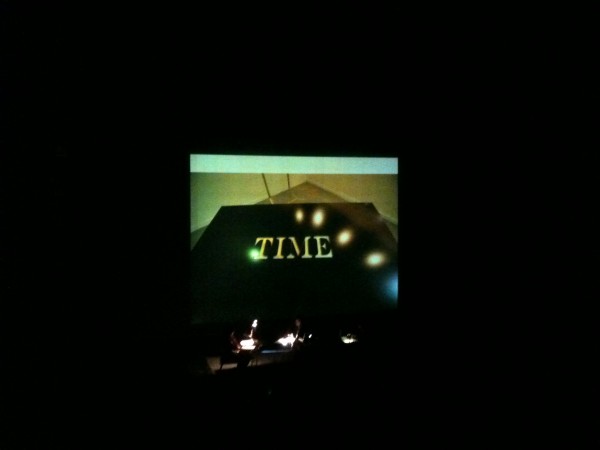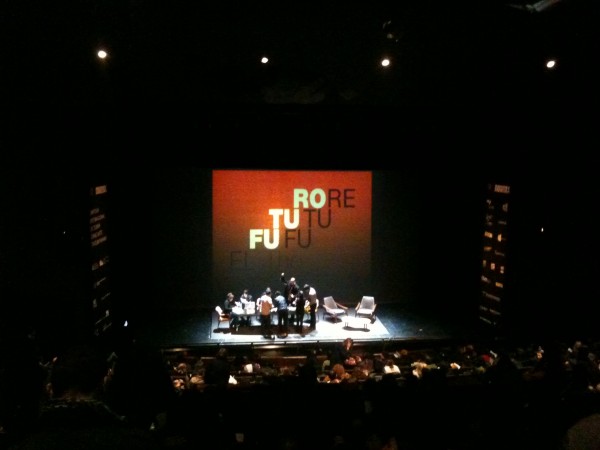The future is an incredibly difficult thing to talk about. How is it possible to sustain a relevant conversation about something as hypothetical and non-existent as what has not happened and that may not happen? The 10th annual Simposio Internacional de Teoría Sobre Arte Contemporáneo (SITAC) on art criticism and curating in Mexico City tackled just this difficult issue in mid-February.
I’ve been to a million conferences and symposiums throughout my career in undergraduate and graduate school. I have been exceedingly disappointed with most of them. What usually gets me is is the lack of real artistic presence. As curators, critics, academics, and even educators, we sit in rooms where we exchange ideas with our own colleagues. We talk about form, medium, space, and we refer to specific works of art as though we are actually in the artists head. What is painfully obvious, however, is that we aren’t artists, and without the presence of an artist these conferences and symposiums ultimately just become one big pat on the back or a metaphorical “thumbs up” for possibly contributing something of original research to academia. Conferences and symposiums are a bubble of unreality. One goes, one reads their paper verbatim, one gets a quiet applause, one sits down content with the work they have done.
SITAC, however, was a breath of fresh air.
For three days critics, academics, philosophers, and artists alike all contributed to a fresh and incredibly interdisciplinary and multidisciplinary conversation on time, art, and the appearance of the future. Directed by Shuddhabrata Sengupta, a writer, critic and member of Raqs Media Collective in New Delhi, it was obvious just from the schedule of events that Sengupta placed an important role on artistic presence at SITAC. Between each panel discussion, or on the panel discussions themselves, the audience was always presented with the point of view of a living, working and respected contemporary artist whose work dealt in some way with time and projections of the future. Art as a professional practice was valued as much as the theoretical argument around “art.” In its premise, SITAC 2012 attempted to propose that the “Future will be seen as a promise, as a destination, as a companion and as a working proposition…to produce a constellation of questions, desires and proposals that can carry us towards tomorrow.”
Thus, we watched video pieces by Yoel Díaz Vázquez, we began one day of the symposium with a site-specific performance piece by Tino Sehgal, we listened as Raqs Meia Collective gave a lecture performance, and we watched a slowly narrated game of chess in a video piece by Hugo Hopping. Artists introduced panels of critics, writers and historians, and they moderated conversations, garnering an important equity with the theoreticians who criticize their work.
What we learned was about a whirlwind of time, disrupting time, a barrage of questioning space and time, and the lack of time in the contemporary moment. The emphasis of art was also beaten into us as audience members, and contemporary art and art making was defined as something that has the ability to break time, and live in confrontation and conflict with heterochronicity.
It was totally invigorating and fed my “art nerdiness” in ways that I hadn’t experienced at any conference before. At SITAC everyone was an equal, any language was accepted and translated, and panels were streamed live on the internet. I’m now SITAC’s biggest fan, and a firm believer that every conference should be modeled after it.
The symposium set a precedence that art is important to culture and history in a defining way. We need more affirmations of this in the world.





3 comments
Thank you for sharing your experience.
Your point about artists participating is very well taken!
Thank you, Lucirene, for such a great experience!
Thanks, Gabriel!